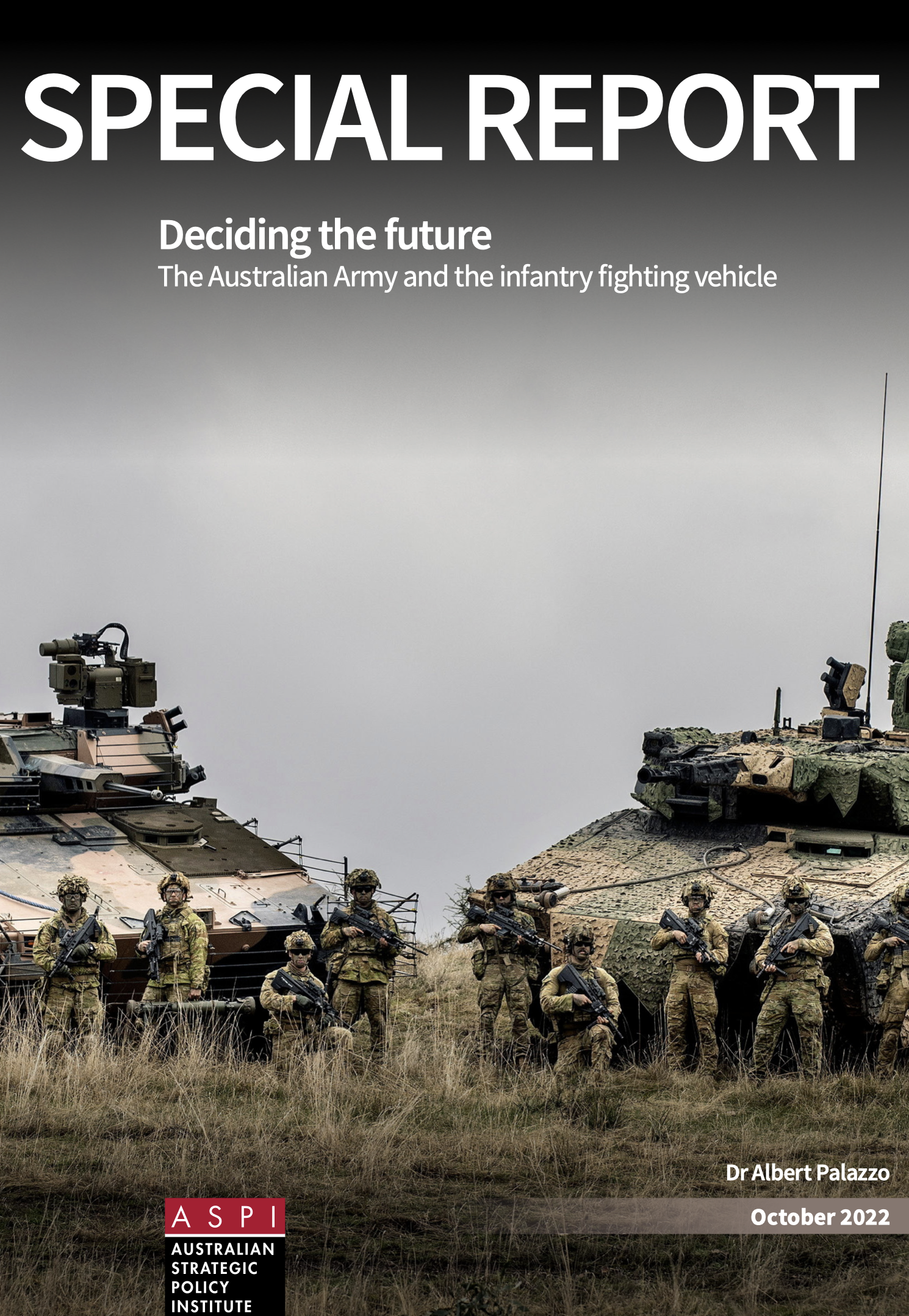The Australian Defence Decision on the Future Fighting Vehicle: Will Determine Australia’s Way of War
How a nation prepares for war is nearly as important as how it wages war. It is in peacetime that a military identifies and acquires the weapons with which it will fight, determines their optimal use, perfects doctrine, and trains its force. Once war comes it is largely too late to make major adjustments—a military fights with what it has, and hopes that its doctrine and training are appropriate, and that there is scope to make adjustments where needed.
The Australian Defence Force is at a transition point in its understanding of the future of war. As its chief, General Angus Campbell, said to an ASPI audience in 2020, Australia faces a more dangerous and unstable future. To meet this danger, the ADF must acquire equipment that is up to the task of safeguarding the nation in a more disruptive age. For the Australian Army, the critical acquisition is the infantry fighting vehicle under project Land 400 Phase 3. These heavily protected and well-armed vehicles sit at the heart of the army’s future combined-arms system which will help enable the ADF to fight as a joint integrated force rather than as three separate services.
The assertion that a single vehicle, such as the IFV, is so central to how the ADF will fight in the future may strike some as an exaggeration. It is not. The infantry fighting vehicle goes to the heart of what war has always been and what it will remain—a contest between people and the land on which they live. Whether Australia finds itself in a future insurgency-style war, similar to Afghanistan, or a more intensive struggle, such as that in Ukraine, control of people and the land they live upon is the constant.
There’s no doubt that long-range missiles, drones, submarines and long-range bombers are useful and necessary platforms. However, distant strike, ubiquitous sensing and cyber-driven operations exist to achieve what continues to determine war’s outcome: soldiers closing with their adversary, seizing ground and giving them no choice but to accept defeat. This requires personnel on the ground, and IFVs will provide the battlefield protection and mobility they need to exert force over the enemy.
Soon the government will make a decision on which IFV it will acquire for the army and in what number. The contenders are the Hanwha Redback and the Rheinmetall Lynx. It will not be an easy decision since both are highly capable vehicles. To assist in this decision, I have authored an ASPI special report, Deciding the future: The Australian Army and the infantry fighting vehicle.
My goal was to explain the importance of the IFV in determining how the army will fight in the more dangerous future that is unfolding. It highlights the role these vehicles will play in advancing the ADF’s joint warfighting system. These vehicles represent a generational leap in technological capability over what they replace, much like the Royal Australian Air Force’s experience when it went from a fourth- to a fifth-generation force with the acquisition of the F-35.
In making its observations on the critical importance of the IFV decision, Deciding the future also considers the existing gaps and opportunities that Defence needs to address to obtain the most from these vehicles. For example, the ADF has traditionally undervalued logistics, which will have an effect on the operational deployment and sustainment of these vehicles. There are solutions to present logistic gaps or offsets that can be leveraged. Still the government needs to recognise, as the report points out, that optimising the ADF’s combat capability will necessitate additional investment, not just in logistics, but also in armed and counter-drone systems, local ammunition manufacturing and further integration with the other services. Mitigations exist for these deficiencies, but the point is that the IFV is not a stand-apart capability. Rather, it is one that both needs and creates links across the entire force.
The performance of the Russian army in its war with the Ukraine has led some to hastily conclude that armoured vehicles have had their day. This is short-sighted thinking, which the report disputes. Russia’s performance has been abysmal, but its failure to employ properly trained troops, decent leadership, effective logistics and up-to-date platforms have been more telling than armour’s putative obsolescence. This war offers many lessons, but none suggest that the Australian Army does not require an IFV.
To put its conclusions into a broader context, Deciding the future provides scenarios illustrating potential tasks the government may want the ADF to perform, and the place of the IFV in such tasks. These include an urban fight in support of our archipelagic neighbours, a resumption of conflict on the Korean Peninsula and the defence of forward-deployed missile batteries in a maritime contest against a peer competitor. The report also takes into account climate change and its potential to result in deployments ranging from peacekeeping to helping restore stability amid state collapse.
The more dangerous world that Campbell predicted two years ago is coming into being. Strains are being felt across the international system, from climate change to more assertive authoritarian states, while fundamentalist movements continue to threaten. To protect Australia the nation will need a force that is more robust and powerful than it is at present. The IFV represents an investment in army capability for a more dangerous age. As Deciding the future maintains, it is now up to the government to determine the extent and direction of that investment.
Albert Palazzo is an adjunct professor at the University of NSW Canberra. He has published widely on Australian military history and the future character of war.
This article was published by ASPI on October 12, 2022.

